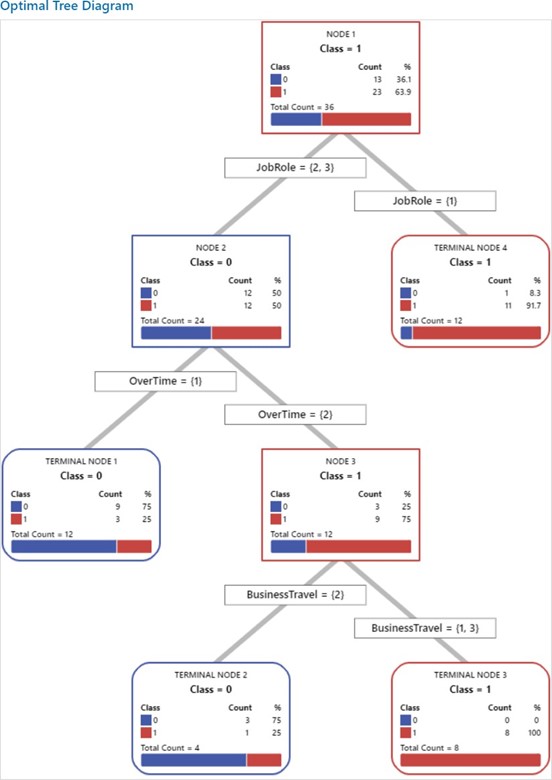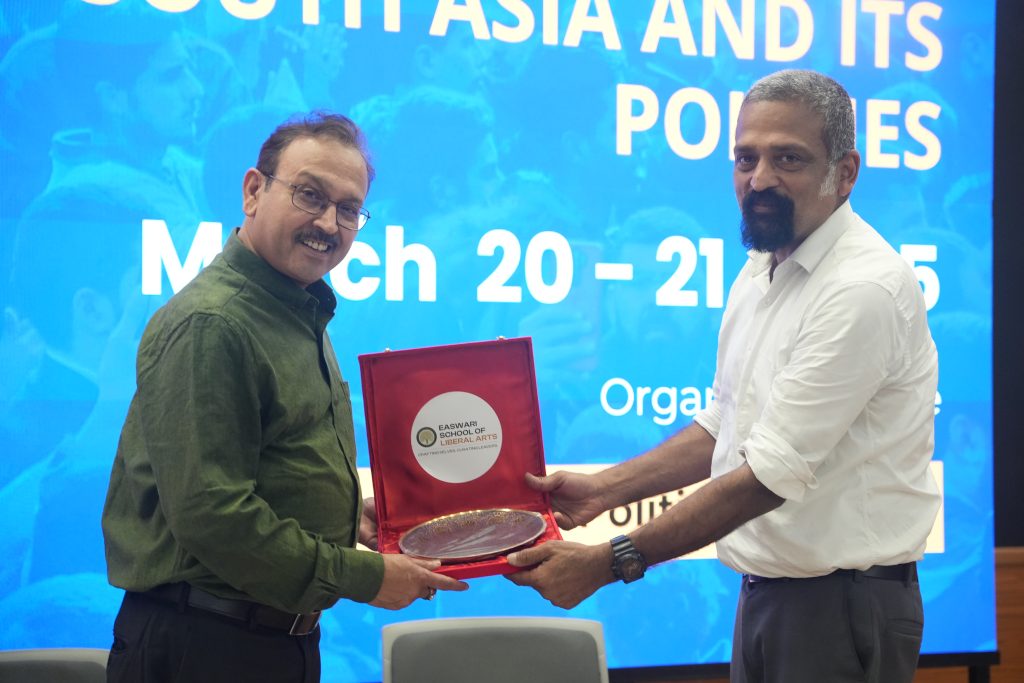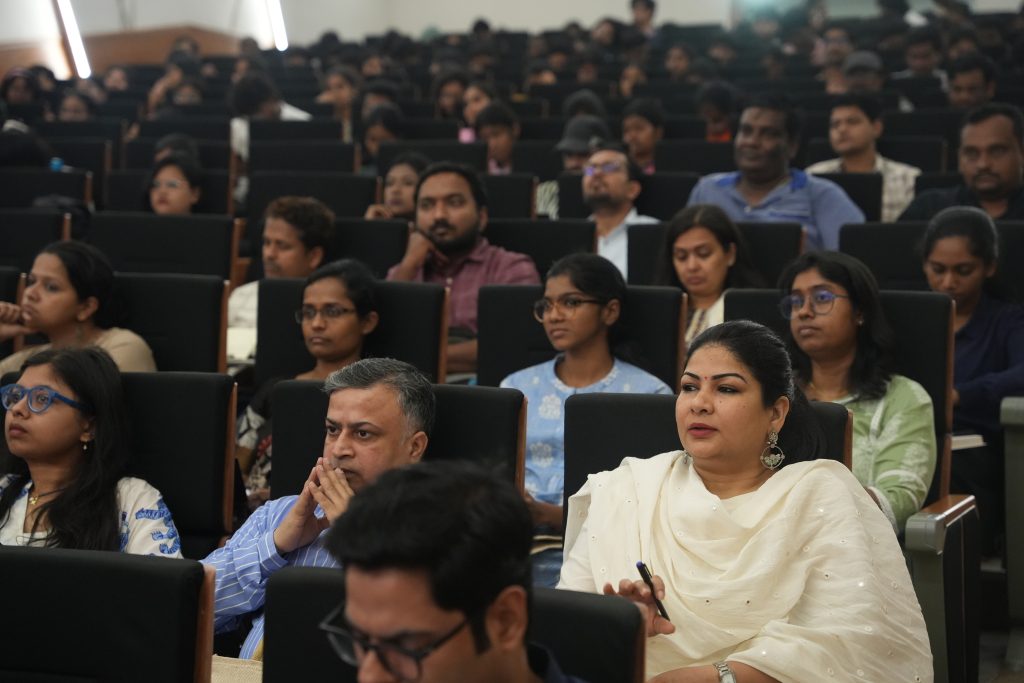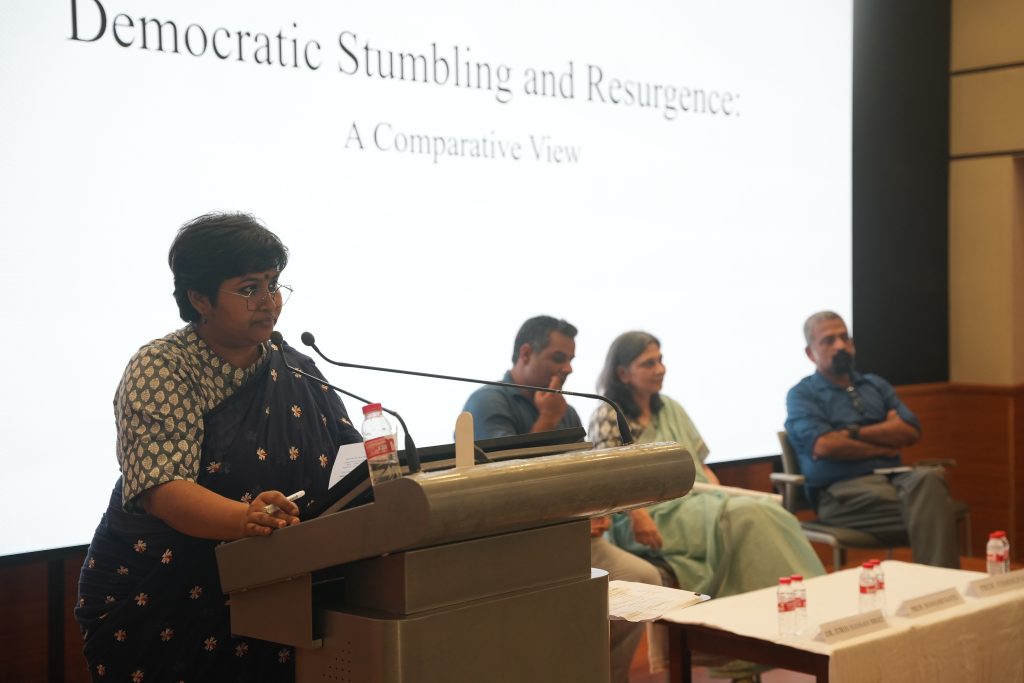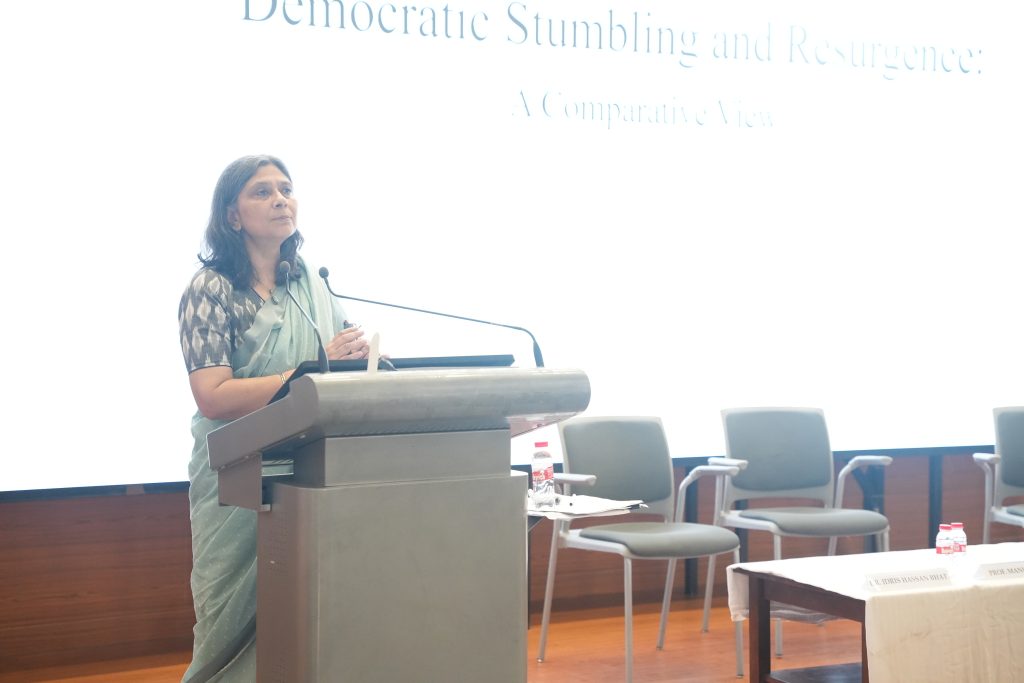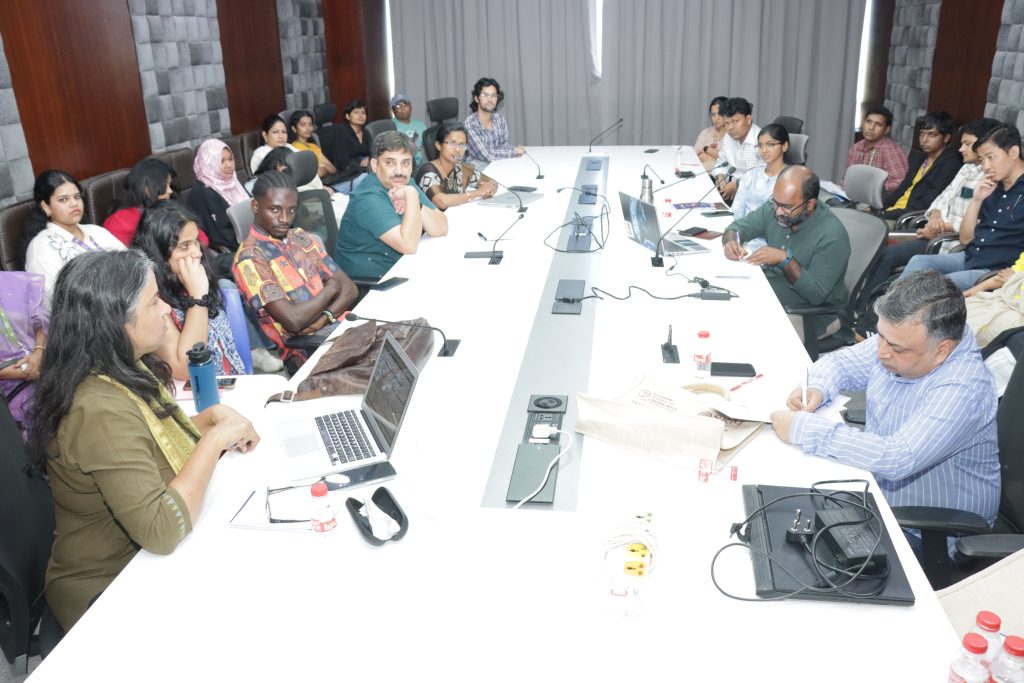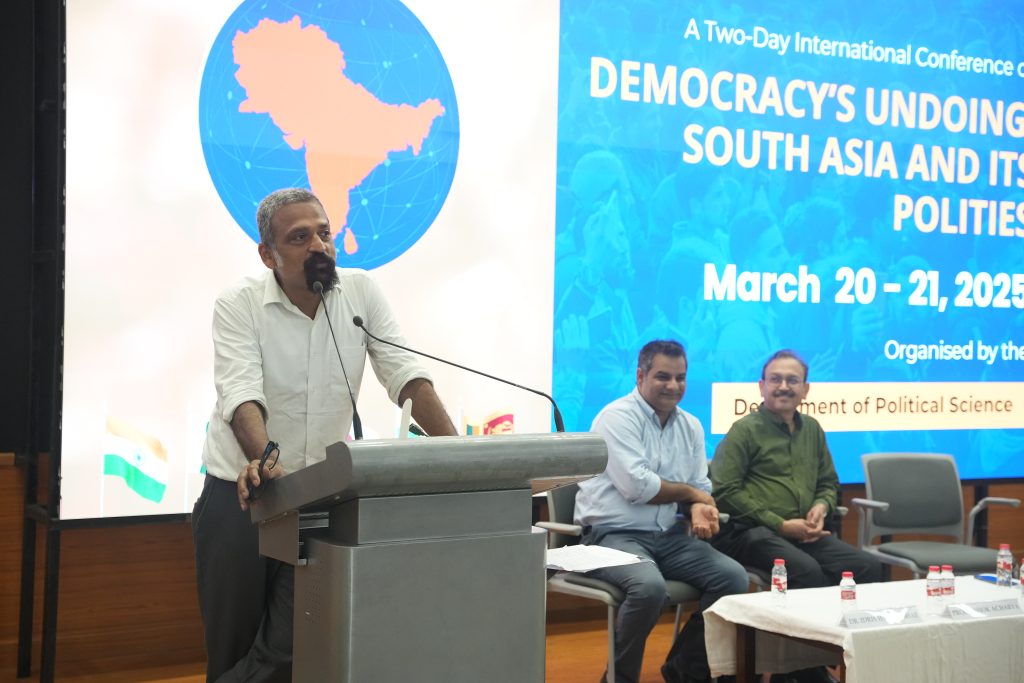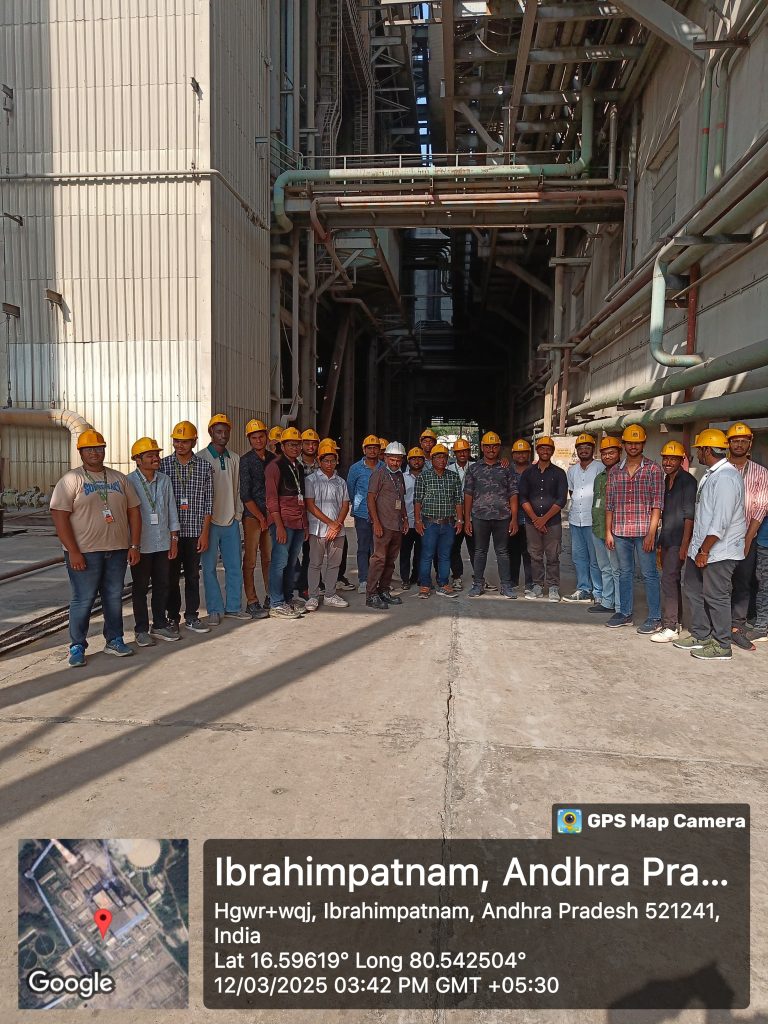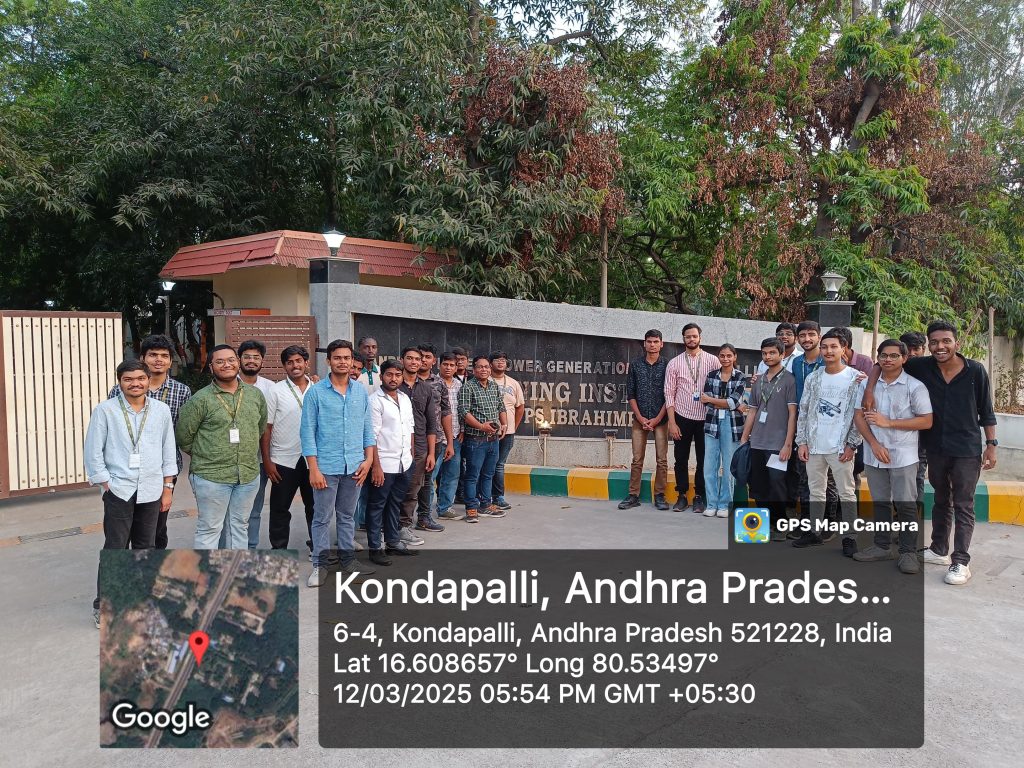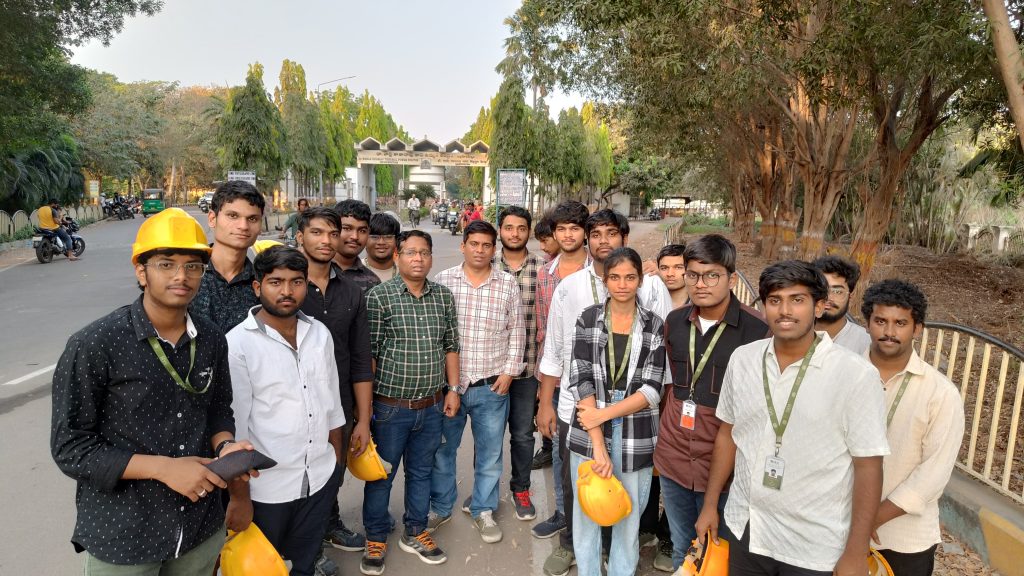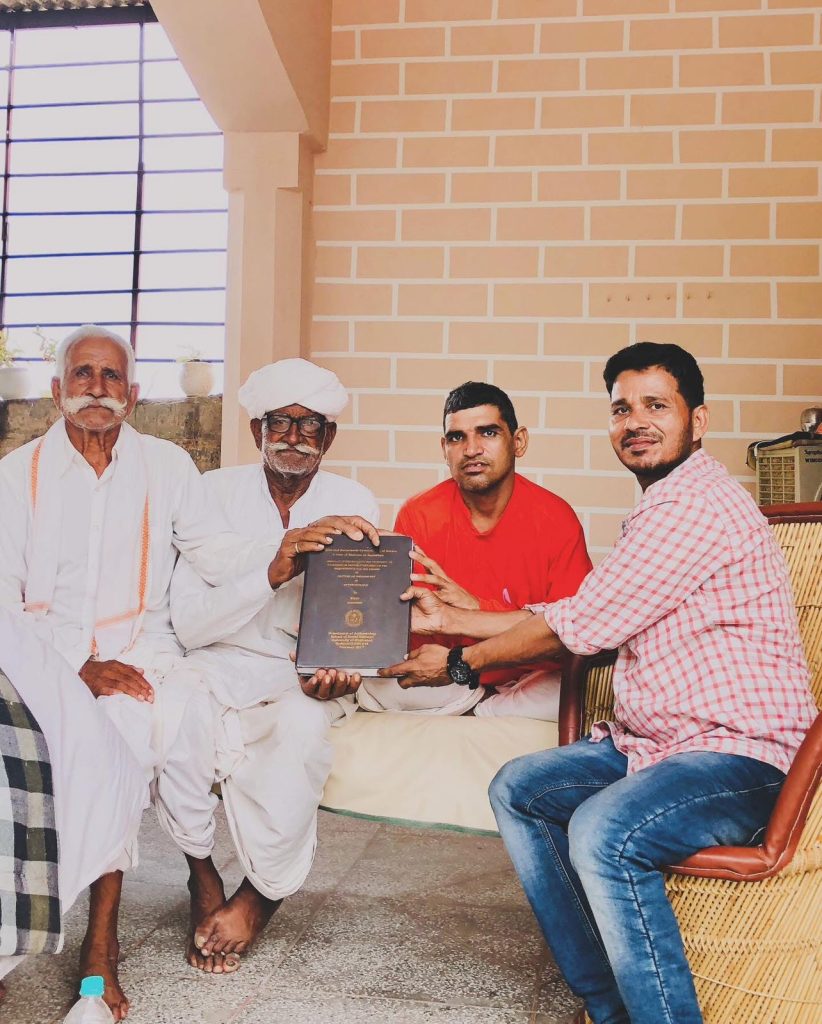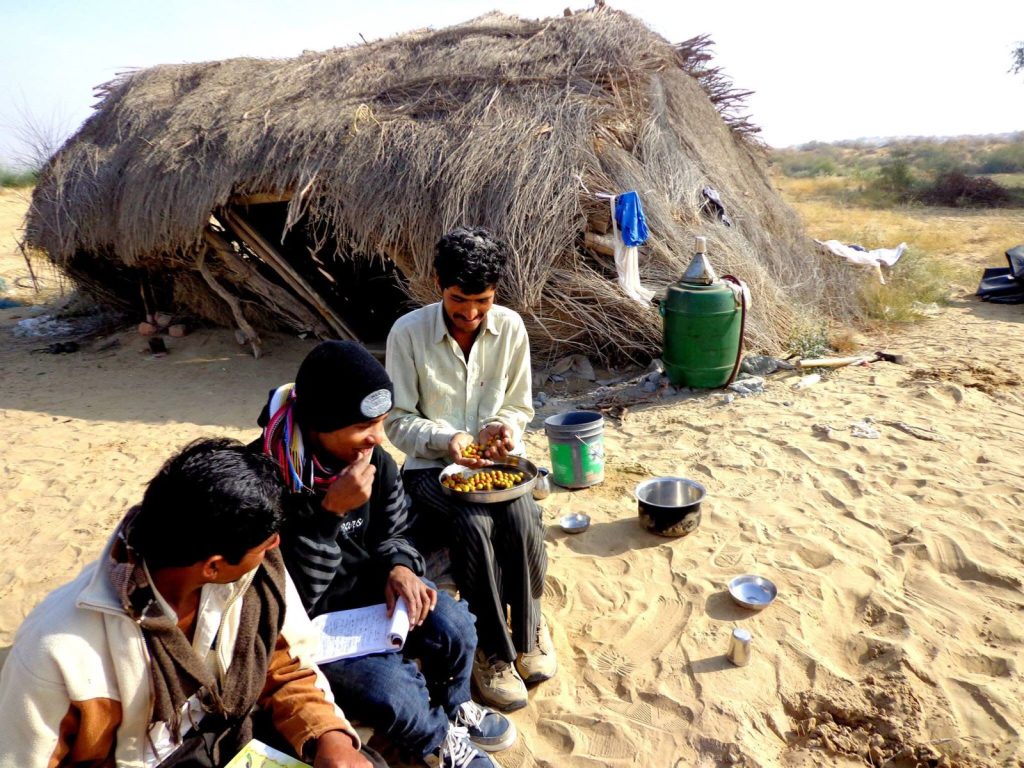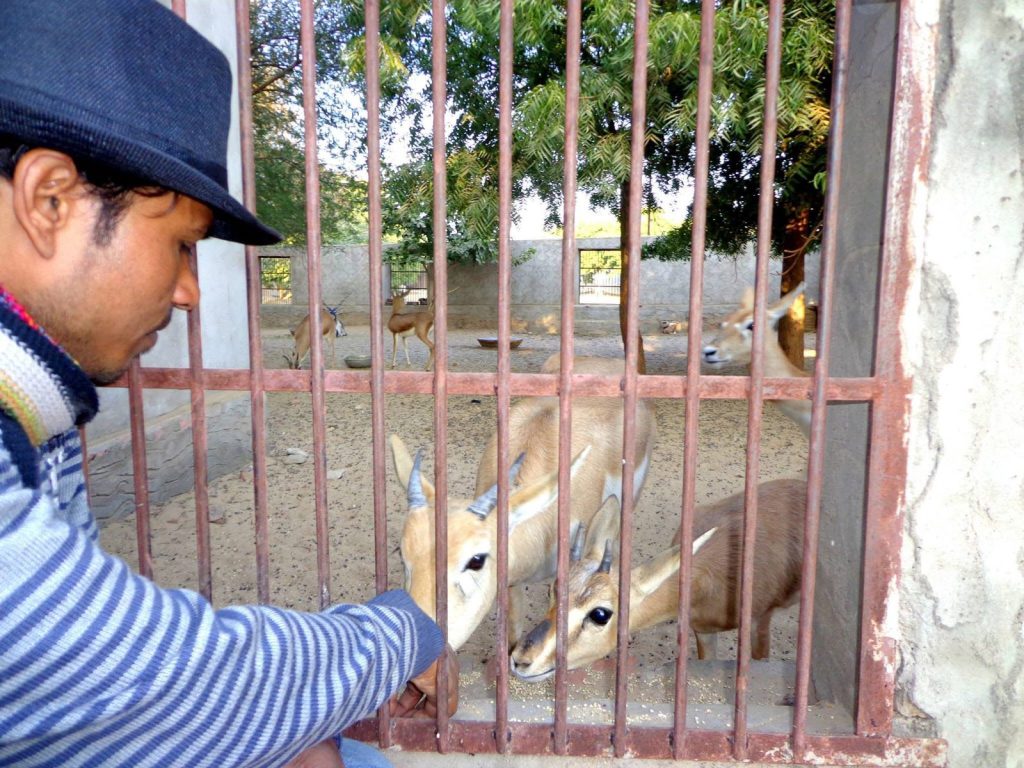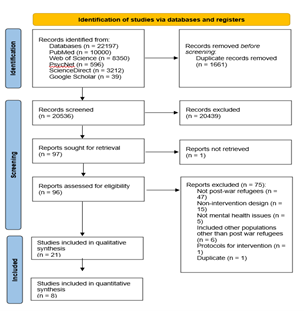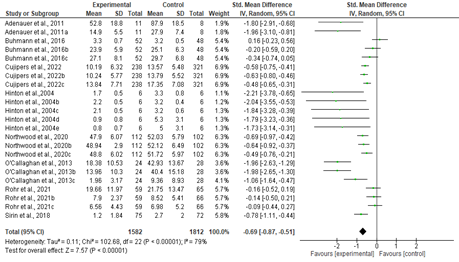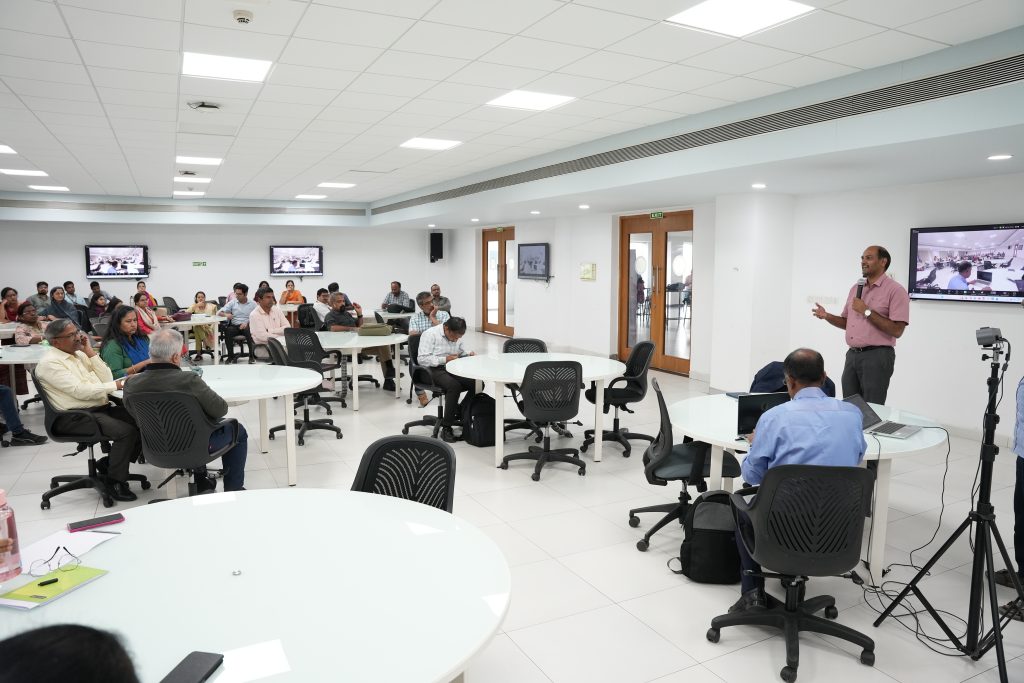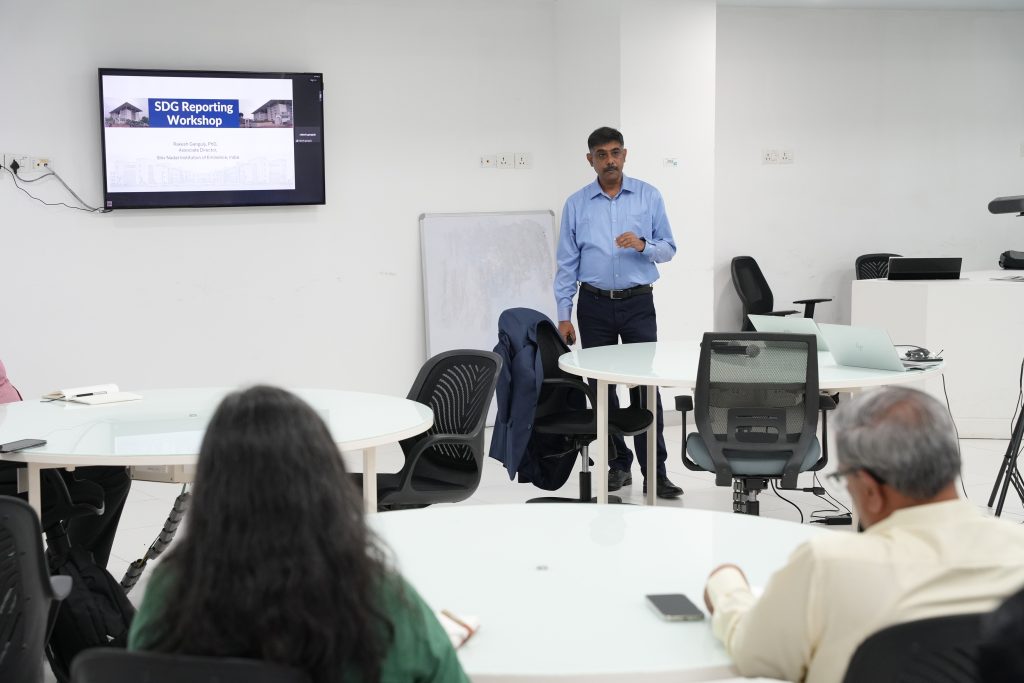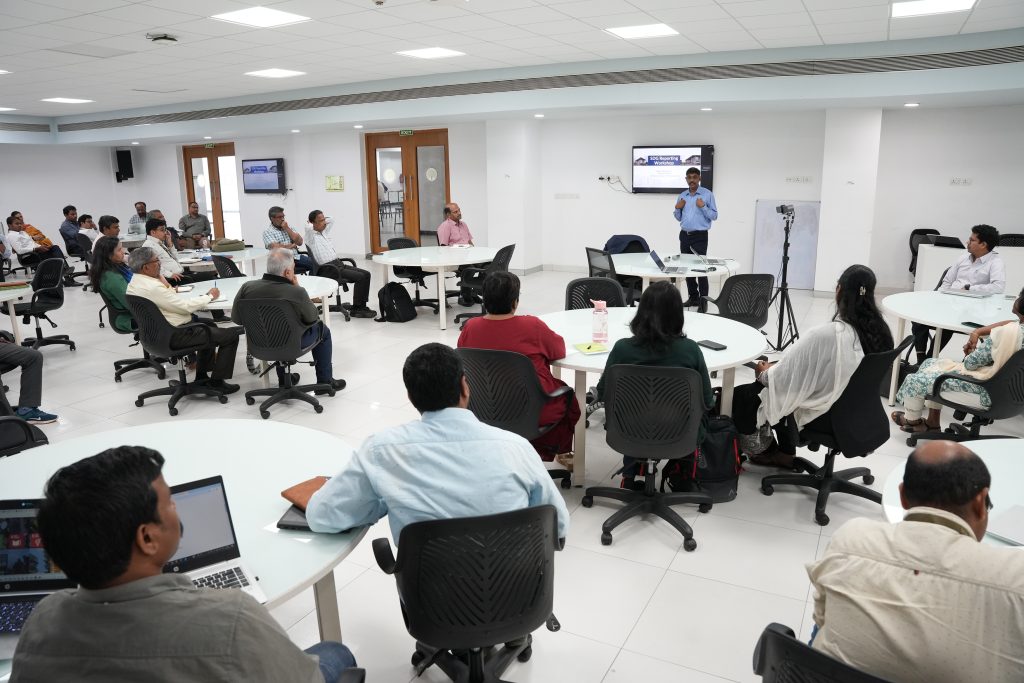All Management Events
- “Democracy Unravelled” – International Conference on Exploring the South Asian Political Perspective March 26, 2025
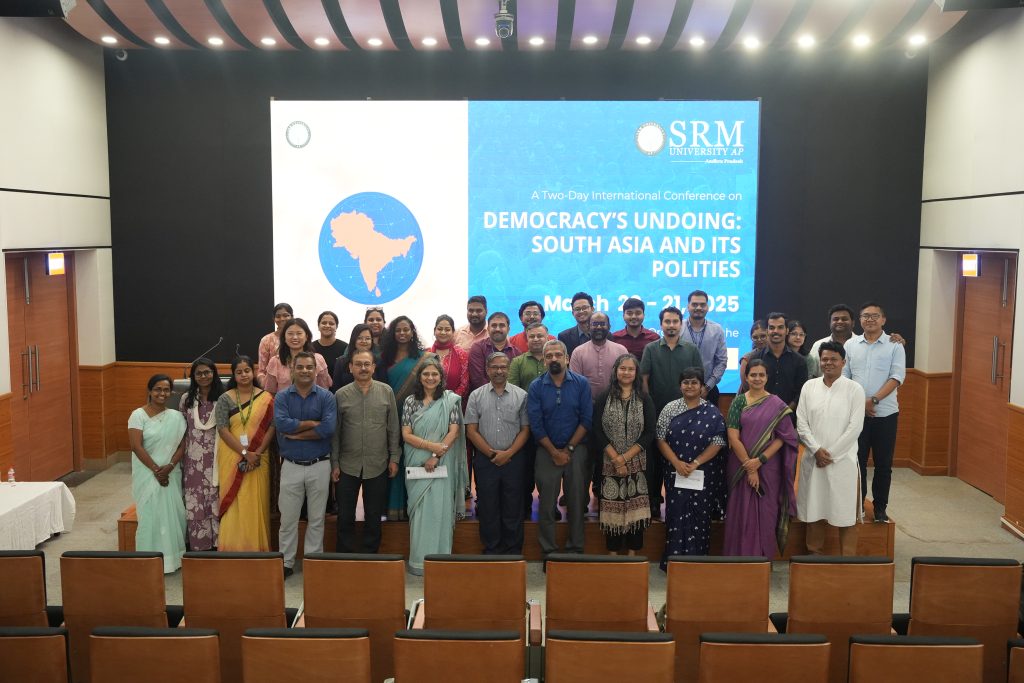
Academicians, research scholars, and social scientists from renowned institutions across the world assembled at the two-day international conference on “Democracy’s Undoing: South Asia and its Polities” hosted by SRM AP on March 20-21, 2025, to explore the pressing issues and challenges faced by various democracies in South Asia. The conference organised under the aegis of the Department of Political Science, Easwari School of Liberal Arts, explored the concept of democracy and its relevance to the current political landscape in South Asia.
Prof. Vishnupad, Dean – Easwari School of Liberal Arts set the tone for the conference in his welcome address. He deliberated on various aspects of democracy and shared the vision behind Easwari School of Liberal Arts, now home to seven vibrant departments, each oriented towards the holistic growth of its students— intellectual, emotional, and ethical. Dr Idris Hassan Bhat, Assistant Professor of the Department of Political Science and the convener of the conference, addressed the resilience of democratic ideals in South Asian nations.
Prof. Ashok Acharya, from the Department of Political Science, University of Delhi, delivered the first keynote session on the contextual explorations of liberalism. He examined liberal values and how they align with democracy in today’s complex political climate. Tracing the relationship between liberalism and democracy, Prof. Acharya stated, “The 20th century saw democracy take root as a regime, while liberalism functioned as a guiding ideology with an emphasis on liberty, self-governance, and diversity.” He elaborated on the significance of ‘dissensus’ in a liberal democratic society.
The second keynote address welcomed Dr Kurt Annen, a Professor of Economics at the University of Guelph, Ontario, Canada, who offered a global perspective on democracies. One of the central themes of the lecture was the challenge of establishing a clear causal relationship between democracy and economic growth. He also highlighted the importance of understanding the mechanisms through which democracies may foster economic development.
The conference also featured thought-provoking panel discussions, roundtable sessions, and paper presentations on various topics, ranging from Religious Nationalism and Homeland Fantasies in South Asia to the State of Minorities in South Asia to the Challenges of Inequality and Poverty to Democracy, that provided intense academic engagement and fresh perspectives for the participants and students at the Easwari School of Liberal Arts.
Continue reading → - Bridging the Gap between Theory and Practical Learning March 25, 2025
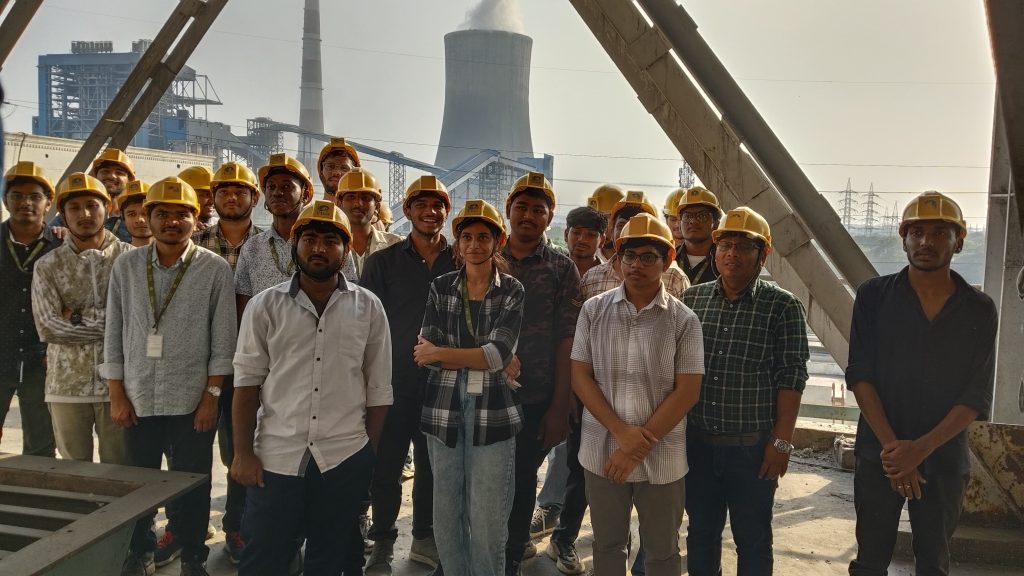 The Department of Mechanical Engineering at SRM University-AP organised an industrial visit to the Dr Narla Tata Rao Thermal Power Station. Dr Chandan Kumar and Dr Manjesh Kumar, faculty coordinators at the department accompanied the students during the visit.The visit was aimed to facilitate practical knowledge among students and to enhance their industry exposure.
The Department of Mechanical Engineering at SRM University-AP organised an industrial visit to the Dr Narla Tata Rao Thermal Power Station. Dr Chandan Kumar and Dr Manjesh Kumar, faculty coordinators at the department accompanied the students during the visit.The visit was aimed to facilitate practical knowledge among students and to enhance their industry exposure.During the visit students were able to explore the various operational aspects of the power plant including boiler operations, turbine functioning, coal handling and environmental management techniques. The engineers from the plant also shared their expertise and offered practical demonstrations of the thermal plants’ functioning.
Students also got an opportunity to discuss the operational challenges and understand first hand the potential solutions to the problems. Interactions such as these allowed the students to make real time practical applications of the theoretical aspects learned.
The Department of Mechanical Engineering expressed gratitude to the management and staff of Dr Narla Tata Rao Thermal Power Station for their warm hospitality and invaluable learning experience. This visit was not only educational but also essential in bridging the gap between theory and practical application, contributing meaningfully to the academic and professional development of the students.
Continue reading → - Scaling the Impossible: Personnel Management at the Maha Kumbh Mela March 25, 2025
- Dr Dinesh Reddy Vemula March 25, 2025
- Chemistry Student Secures Prestigious HEST Scholarship March 25, 2025
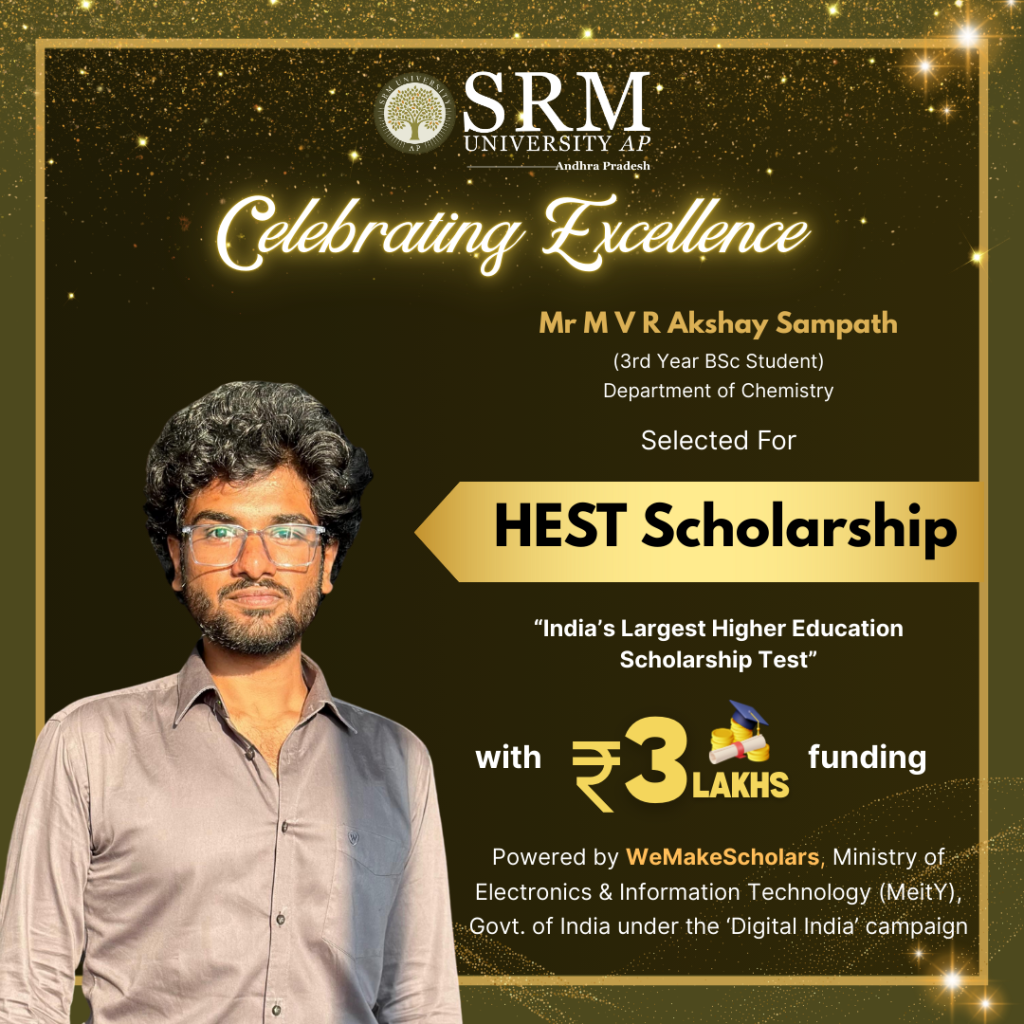
Department of Chemistry is proud to announce that Mr M V R Akshay Sampath, 3rd year BSc. Chemistry student has been selected for the HEST Scholarship, India’s largest Higher Education Scholarship Test powered by WeMakeScholars, an organisation funded and supported by the Ministry of Electronics & Information Technology (MeitY), Govt. of India under the ‘Digital India’ campaign. Through this scholarship, Mr Sampath is eligible for scholarship funding of ₹3 lakhs, which can be utilized towards tuition fees, academic expenses, or travel costs for higher education.
Along with academics, Akshay is working in the functional nanomaterials laboratory under the supervision of Dr Sabyasachi Chakrabortty and in computational chemistry research under the supervision of Dr Baswanth V S Oruganti, Chanakya University, Bangalore. This opportunity significantly supports his aspirations for higher education and research in the branches of bio-photonics and material science in the top research-intensive universities globally in countries like Germany, UK, Ireland, and the USA.
Continue reading → - Bishnois Combating Climate Change March 24, 2025
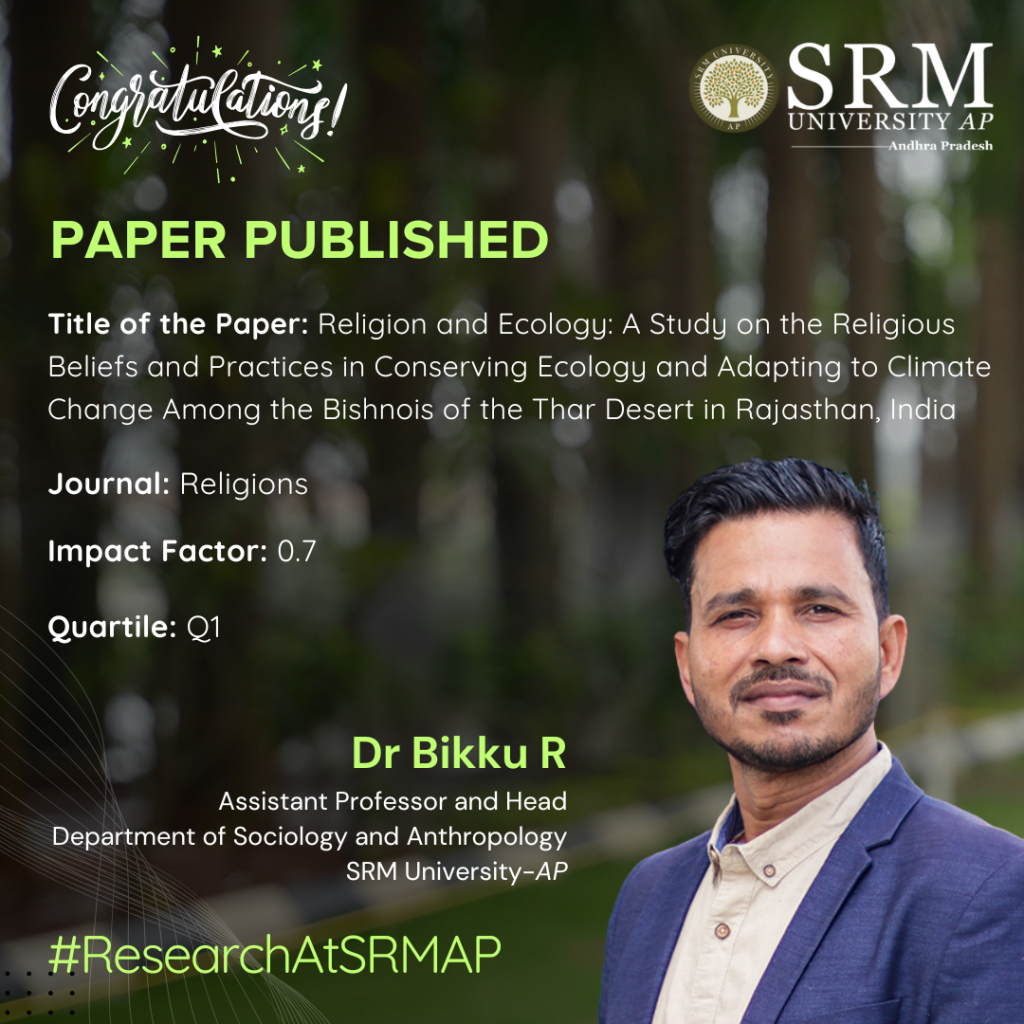 Prof. Bikku R, Assistant Professor and Head of the Department of Sociology and Anthropology, examines in his research paper, “Religion and Ecology: A Study on the Religious Beliefs and Practices in Conserving Ecology and Adapting to Climate Change Among the Bishnois of the Thar Desert in Rajasthan, India,” the environmental practices and knowledge of the Bishnoi community in Khejarli Village, Jodhpur. He highlights the connection between these local communities and their crucial role in conserving the region’s flora and fauna, as well as their efforts in combating climate change.
Prof. Bikku R, Assistant Professor and Head of the Department of Sociology and Anthropology, examines in his research paper, “Religion and Ecology: A Study on the Religious Beliefs and Practices in Conserving Ecology and Adapting to Climate Change Among the Bishnois of the Thar Desert in Rajasthan, India,” the environmental practices and knowledge of the Bishnoi community in Khejarli Village, Jodhpur. He highlights the connection between these local communities and their crucial role in conserving the region’s flora and fauna, as well as their efforts in combating climate change.Abstract
Climate change is a global issue with diverse regional impacts threatening the survival of both human and non-human species. While the academic discourse on climate change predominantly focuses on macro-level studies, it often neglects the vital role of local environmental practices and the perspectives of affected communities. This paper presents insights from ethnographic fieldwork conducted among the Bishnoi community in Khejarli Village, Jodhpur, in the Thar Desert of India. This study utilizes participant observations, semi-structured interviews, focus group discussions, and case studies to explore local environmental knowledge and practices aimed at mitigating and adapting to climate change. Findings reveal the Bishnois’ deep-rooted relationship with nature and the pivotal role of religious beliefs in shaping their conservation efforts. Since the 15th century, the Bishnois have been committed to protecting local species, such as plants and animals, which has been crucial for sustaining the desert ecosystem and combating climate change. Moreover, their religious teachings and principles have helped conserve values among younger generations, ensuring a lasting culture of environmental stewardship. This paper supports integrating micro-level ethnographic studies into global climate change dialogues, urging the recognition of local knowledge as an essential resource for addressing contemporary environmental challenges
Practical and Social Implications:
“The Bishnois’ enduring commitment to protecting wildlife and their natural surroundings demonstrates that integrating local, religious, and cultural values can help mitigate both natural and human-induced climate change. Expanding research on local communities’ ecological knowledge and conservation practices is essential for challenging contemporary climate change impacts. While global awareness is necessary, it is equally important to understand and support the valuable contributions of local communities in combating climate change. We can develop more effective, culturally relevant solutions to global environmental challenges by embracing these contributions”.
Future Research plan:
Dr Bikku is preparing to write a book on The Bishnoi Religion and Ecological Conservation
Continue reading → - Dr Ritika Verma March 24, 2025
- A Meta Analysis on the Mental Health of War Refugees March 21, 2025
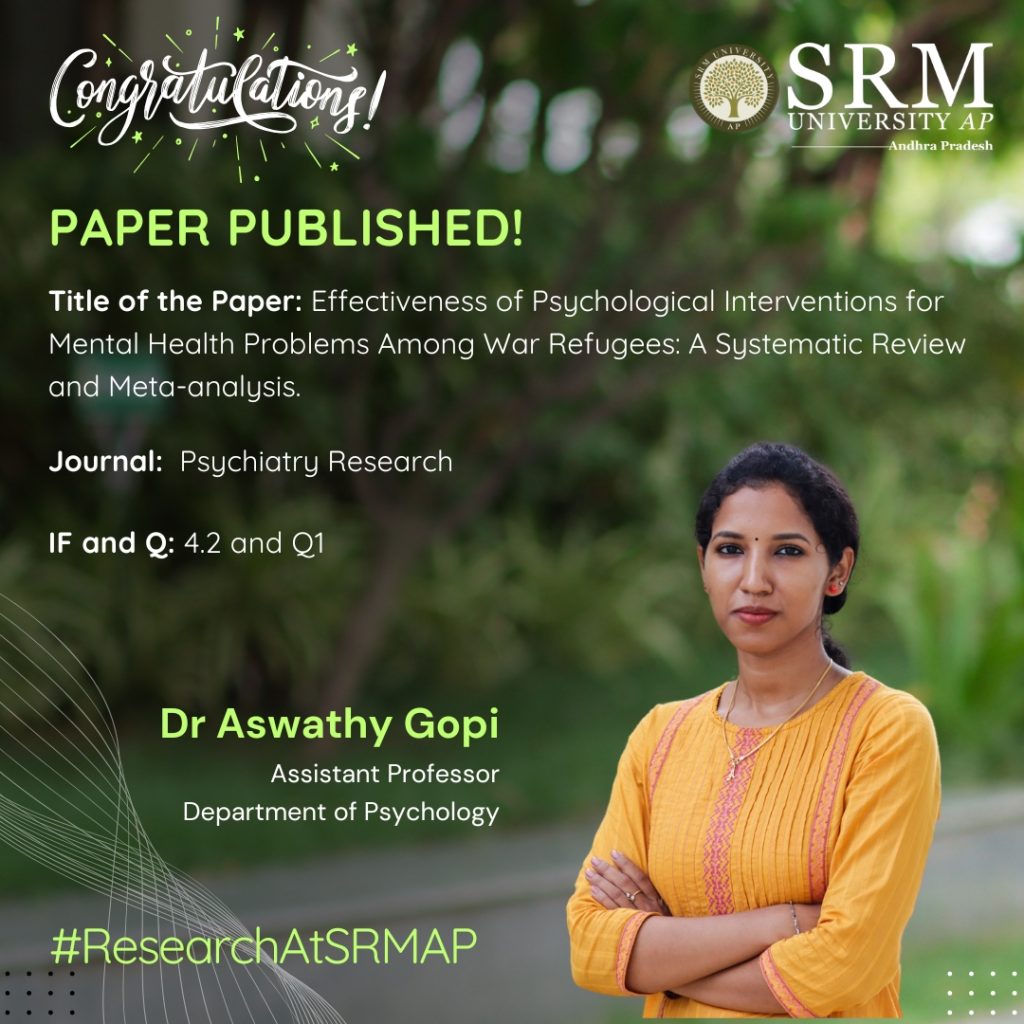 “I object to violence because when it appears to do good, the good is only temporary; the evil it does is permanent.”, this quote by Mahatma Gandhi serves as a stark reality that war leaves individuals grappling in severe trauma. Dr Aswathy Gopi, an Assistant Professor at the Department of Psychology, explores this impact in her research paper titled “Effectiveness of Psychological Interventions for Mental Health Problems Among War Refugees: A Systematic Review and Meta-Analysis.” Her paper sheds light on the profound effects of war on the mental health of refugees, emphasising the need for tailored approaches to support their psychological well-being.
“I object to violence because when it appears to do good, the good is only temporary; the evil it does is permanent.”, this quote by Mahatma Gandhi serves as a stark reality that war leaves individuals grappling in severe trauma. Dr Aswathy Gopi, an Assistant Professor at the Department of Psychology, explores this impact in her research paper titled “Effectiveness of Psychological Interventions for Mental Health Problems Among War Refugees: A Systematic Review and Meta-Analysis.” Her paper sheds light on the profound effects of war on the mental health of refugees, emphasising the need for tailored approaches to support their psychological well-being.Abstract:
War and displacement have led to a global mental health crisis, with 117.3 million individuals displaced and one in five refugees experiencing psychological distress. Despite the availability of psychological interventions, their overall effectiveness remains unclear. This systematic review and meta-analysis evaluate the impact of psychological interventions on war refugees’ mental health. A comprehensive search of PubMed, Web of Science, APA PsycNET, ScienceDirect, and Google Scholar (July 2024) identified 21 studies for systematic review and eight randomized controlled trials for meta-analysis. The results indicate a significant medium effect size of psychological interventions (SMD = -0.69, 95% CI: -0.87, -0.51, p < .00001), with in-person interventions showing a large effect (SMD = -1.03) and telehealth interventions demonstrating a small effect (SMD = -0.44) in reducing the mental health issues among war refugees. Findings support the effectiveness of psychological interventions, emphasizing the need for further research on digital mental health solutions to enhance accessibility for war refugees.
Explanation in layperson’s terms
War forces millions of people to leave their homes, and many of them experience severe stress, anxiety, and depression. In fact, one in five refugees struggles with serious mental health problems. While various psychological therapies exist to support them, it is unclear how effective they truly are. The current review identified the available in-person as well as telehealth-based psychological interventions that help war refugees in addressing their mental health conditions using evidence from 21 studies. A statistical examination of eight high-quality trials found that psychological support significantly helps refugees in reducing mental health issues. Although face-to-face therapy was reported to be the most effective, online therapy also demonstrated positive results, with a smaller effect. Given the limited number of studies on digital interventions, further research is warranted due to factors like displacement and limited healthcare resources of war refugee.
Practical Implementation and Social Implications
Psychological interventions involving both in-person and telehealth showed effectiveness for mental health problems among war-refugees. Policy makers and intervention developers should provide keen attention while designing interventions for mental health issues of war refugees as their challenges are distinct from other refugees and the general population. Further, the government and healthcare authorities can aim for adopting hybrid models integrating both telehealth and in-person interventions for the effective management of mental health problems of war refugees.
Collaborations
This secondary analysis was conducted in collaboration with Indian Institute of Technology Bhilai, Chhattisgarh.
Future research plans
Dr Aswathy Gopi is currently working on positive organisational health, with several research works under review in reputed high-impact journals. The research primarily explores organisational effectiveness and mental health outcomes across various populations. She is also collaborating with IITs and central universities to conduct both primary and secondary research in this domain.
The link to the article
https://doi.org/10.1016/j.psychres.2025.116432Continue reading → - Dr Rakesh Ganguly on SDG Implementation March 21, 2025
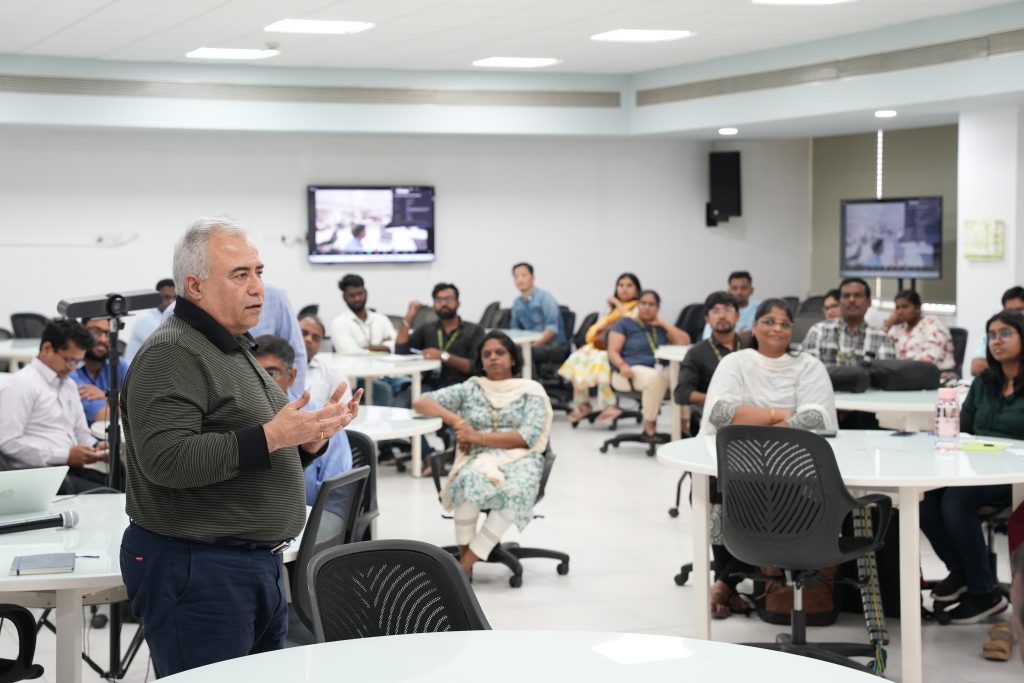 The Office of the Quality Assurance and Rankings at SRM University-AP organised a one-day workshop on the implementation of Sustainable Development Goals on campus. The event witnessed Mr Rakesh Ganguly, Associate Director, Office of Accreditation and Regulatory Affairs, Shiv Nadar Institution of Eminence.
The Office of the Quality Assurance and Rankings at SRM University-AP organised a one-day workshop on the implementation of Sustainable Development Goals on campus. The event witnessed Mr Rakesh Ganguly, Associate Director, Office of Accreditation and Regulatory Affairs, Shiv Nadar Institution of Eminence.Mr Rakesh, a nodal officer of NIRF, IoE and QS, is also an alumnus of the UC Berkeley’s Executive Leadership. The one-day workshop aimed to provide a structured approach to SDG reporting and its role in institutional sustainability and global rankings. The session exerted emphasis to areas where institutions can
demonstrate their strengths and the importance of collaborations in enhancing sustainability efforts.Dr Ganguly examined the potential research and collaborative opportunities with industries in redressing the sustainability challenges. He also gave the participants an insight into showcasing sustainable initiatives through paperwork. Attendees got an opportunity to learn the significance of aligning sustainability development goals through research and community alignment.
The event saw the participation of faculty, PhD Scholars and Staff from various disciplines reflecting the growing interest in sustainability and SDG-driven initiatives. The workshop concluded with a valedictory session, where Dr Karthik Rajendran delivered the vote of thanks, acknowledging the contributions of the speaker, participants, and organising team.
Continue reading → - An Algorithm that Redefines Employee Attrition Prediction Technology March 21, 2025
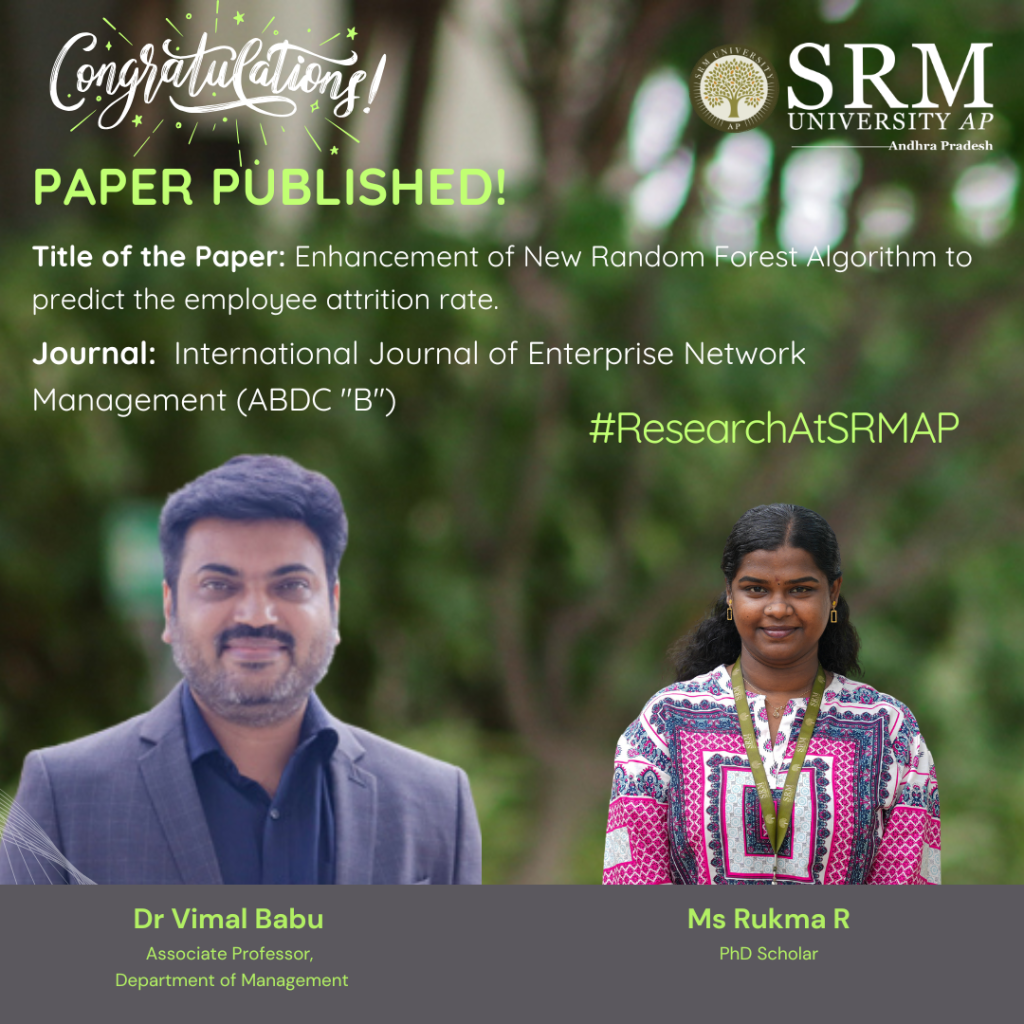
Dr Vimal Babu, Associate Professor in the Department of Management along with his PhD scholar Ms Rukma R, have co-authored a research paper titled “Enhancement of New Random Forest Algorithm to Predict the Employee Attrition Rate.” Published in the International Journal of Enterprise Network Management (ABDC-B), the paper also includes contributions from Dr Vijaya Prabhagar M, Assistant Professor at IIM Jammu.
Their work focuses on improving machine learning techniques to better predict employee attrition, that is, the employees who are likely to leave the organisation. The study focuses on the impact of HR analytics adoption by applying algorithms to predict employee attrition. It uses the Random Forest algorithm to identify reasons for attrition. However, this algorithm can be slow due to the large number of decision trees it uses. To improve it, the study proposes a new method that selects the best decision trees using a technique called fractional factorial design, which outperforms all others in predicting employee attrition.
Abstract
The problem of employee attrition in every organisation concerns the employee turnover ratio, thereby increasing the cost of investment in human resources. Various factors are reasonable for the rapid attritions at different phases. The purpose of the current study is to predict the employees who are likely to leave the organization. The factors that lead to attrition are identified using the Random Forest algorithm. The Random Forest algorithm is a widely used supervised machine-learning technique for classification and prediction. However, the random forest algorithm has certain issue like it is too slow and ineffective for real time predictions. i.e., the large number of trees can make the algorithm, which results in a slower model. Therefore, the study proposes, a new alternative for choosing the appropriate decision trees based on the concept of fractional factorial design of experiments. The different performance criteria were compared across the modified random forest algorithm, existing random forest algorithm, Support Vector Machine (SVM), Logistic Regression (LR), Navie Bayes (NB), K – Nearest Neighbour (K-NN), Decision Tree, XG Boost tree and Neural Network (NN). It was found that the modified random forest algorithm excelled in all criteria and performed better than the existing ones.
Practical Implementation/Social Implications of the Research
Practical implication: It emphasises the importance of focusing on factors like Business Travel, Job Role, Over Time, Department, Marital Status, and Education to reduce employee attrition. Organisations should design retention programs that support frequent travellers, manage overtime effectively, and address specific departmental needs. Tailoring job roles, promoting work-life balance through flexible hours, and providing educational opportunities are key strategies for enhancing employee satisfaction and retention.
Social Implication: The measures of this study can transform work culture into a more supportive and inclusive environment, promote gender equality by supporting employees with family responsibilities, and contribute to economic stability through reduced attrition. By investing in employee well-being, organizations can also strengthen their community engagement and corporate social responsibility initiatives for both employees and the broader society.
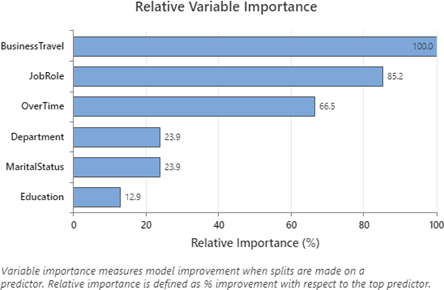
Future Research Plans
Future research could explore other factors influencing employee attrition, such as organizational culture, leadership style, and employee engagement. Longitudinal studies could track changes over time to understand the long-term effects on attrition rates. Additionally, investigating the interplay between identified factors, such as how Job Role and Over Time influence attrition, could provide deeper insights. Expanding the study across different industries and locations may reveal specific trends, allowing for tailored retention strategies. Lastly, incorporating qualitative methods like interviews and focus groups could offer a richer understanding of employees’ experiences and perceptions, complementing the quantitative findings.
Continue reading →